NAM ministers reaffirm solidarity with Palestine as Uganda concludes midterm meeting
The Kampala meeting also urged the United Nations General Assembly to expedite the adoption of the International Covenant on the Right to Development, describing it as “a crucial milestone in our shared pursuit of equity, justice, and sustainable progress.”
President Yoweri Museveni addresses delegates after the 19th Ministerial meeting of the coordinating bureau of the Non-Aligned Movement at Speke Resort Munyonyo on Wednesday. (PPU Photo)
KAMPALA - The 19th Ministerial Meeting of the Co-ordinating Bureau of the Non-Aligned Movement (NAM) concluded on October 16, 2025, at the Munyonyo Commonwealth Resort in Kampala.
The Summit ended with renewed calls for solidarity, justice, and reform of global governance structures to reflect the aspirations of the Global South.
The two-day meeting, held under the theme “Deepening Cooperation for Shared Global Affluence,” ended with a resounding closing statement by Uganda's foreign affairs minister Gen. (rtd) Jeje Odongo, and strong messages of support for Palestine from several member states.
Delivering his closing remarks, Odongo, who chaired the meeting on behalf of Uganda, commended the delegates for their “constructive engagement, valuable contributions, and steadfast commitment to the principles and objectives of our Movement.”
He noted that the deliberations had reaffirmed NAM’s role as “an indispensable force for peace, solidarity, development, and justice, particularly in a world marked by escalating geopolitical tensions and widening inequalities.”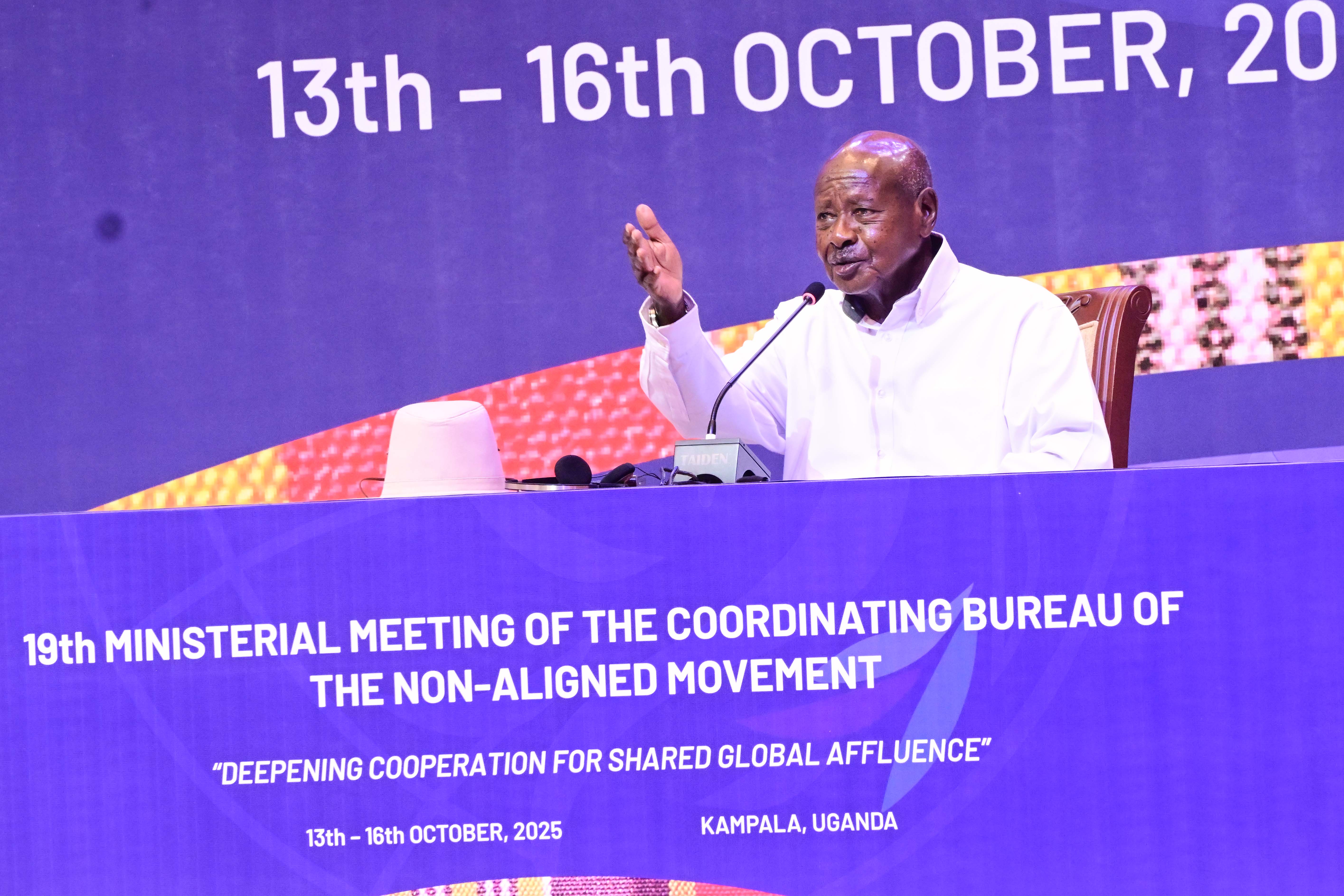
President Yoweri Museveni addresses the 19th Ministerial meeting of the coordinating bureau of the Non-Aligned Movement at Speke Resort Munyonyo on Wednesday. (PPU Photos)
“Our discussions have underscored the continued relevance of the Movement in promoting multilateralism and defending the sovereign equality of all States,” Odongo said.
He added, “We have collectively stressed the urgency of reforming global governance structures, especially within the United Nations, the international financial architecture, and multilateral development institutions, to make them more democratic, equitable, and responsive to the realities and aspirations of the Global South.”
Odongo emphasised the Movement’s unwavering commitment to eradicating poverty and advancing the 2030 Agenda for Sustainable Development, calling for “a revitalised global partnership, anchored in the Addis Ababa Action Agenda and the Sevilla Commitment, to ensure the full realisation of the Sustainable Development Goals (SDGs).”
Palestine takes centre stage
A recurring theme throughout the ministerial meeting was the centrality of the Palestinian question.
The Ministers of the NAM Committee on Palestine reaffirmed their “principled and historic solidarity with the Palestinian people” and their “unyielding support for their just cause for liberation, justice, peace, and security.”
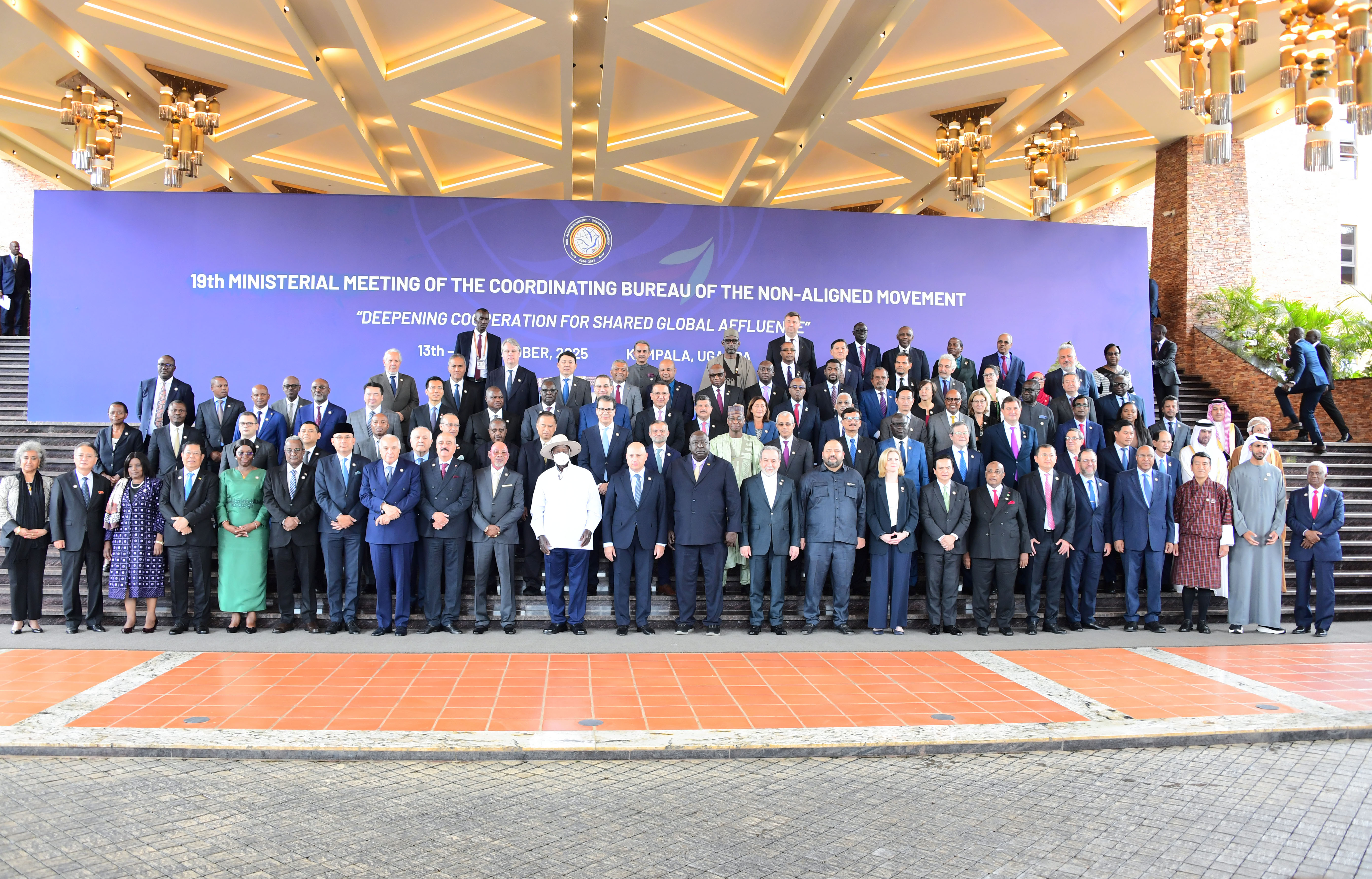
Odongo commended recent international efforts to address the crisis, noting, “We welcome the New York Declaration on the Peaceful Settlement of the Question of Palestine and the Implementation of the Two-State Solution, and commend the Kingdom of Saudi Arabia and France for their leadership in convening the High-level International Conference for the Peaceful Settlement of the Question of Palestine and the Implementation of the Two-State Solution in July 2025.”
He further praised Egypt for hosting the Sharm el-Sheikh Peace Summit and for its “tireless efforts toward ending the war on Gaza and promoting a just and lasting peace.”
The Kampala meeting also urged the United Nations General Assembly to expedite the adoption of the International Covenant on the Right to Development, describing it as “a crucial milestone in our shared pursuit of equity, justice, and sustainable progress.”
Global outcry over Gaza
Palestine foreign moinister Dr Riyad Mansour, expressed deep appreciation to Uganda for its leadership and hospitality, while painting a grim picture of the humanitarian situation in Gaza.
He described Gaza as a place “where over two million people are struggling to survive,” stressing the urgent need to make the ceasefire permanent.
“We have endured two years of continued massacres,” he said, calling it “a genocide that the international community has a duty to end.”
Mansour highlighted growing international recognition of Palestine, saying, “Many countries are pledging political and humanitarian support.” He reaffirmed commitment to the New York Declaration and urged others to “fulfil their responsibilities.”
He added pointedly that the “Palestinian land is not up for grabs,” calling for “a complete end to the violence, not just a pause,” and urged NAM members to back Palestine’s admission as a full member of the United Nations.
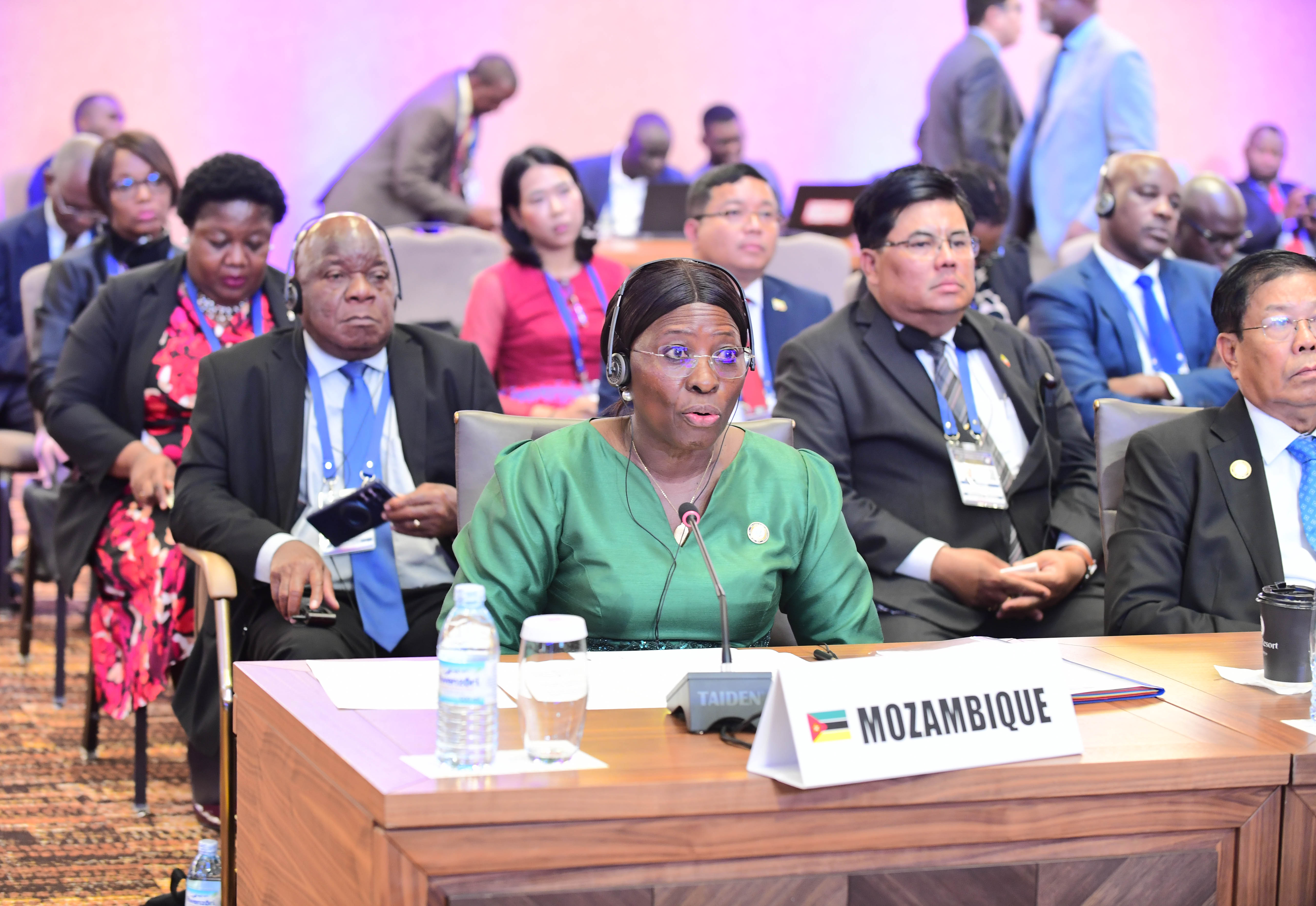
Nations echo support
Countries across the Global South echoed strong solidarity with Palestine and reiterated calls for justice, self-determination, and peace.
Angola’s secretary of state for administration, finance and heritage, Ambassador Osvaldo dos Santos Varela, reaffirmed his country’s support for the Sahrawi people’s right to self-determination and welcomed “the recent Gaza ceasefire and hostage release under the US Peace Plan.”
He called for continued dialogue toward lasting peace and the reconstruction of Gaza.
Azerbaijan deputy foreign affairs minister Samir Sharifov reiterated NAM’s longstanding commitment to a just resolution and welcomed the Gaza ceasefire agreement.
He commended the mediation efforts of Egypt, Qatar, Türkiye, and the US, noting that President Ilham Aliyev had attended the 2025 Middle East Peace Summit in Sharm El-Sheikh.
Bangladesh’s advisor for foreign affairs, Touhid Hossain, reaffirmed the principles of sovereignty and solidarity, calling for “urgent international efforts for the safe return of 1.3 million Rohingya refugees.”
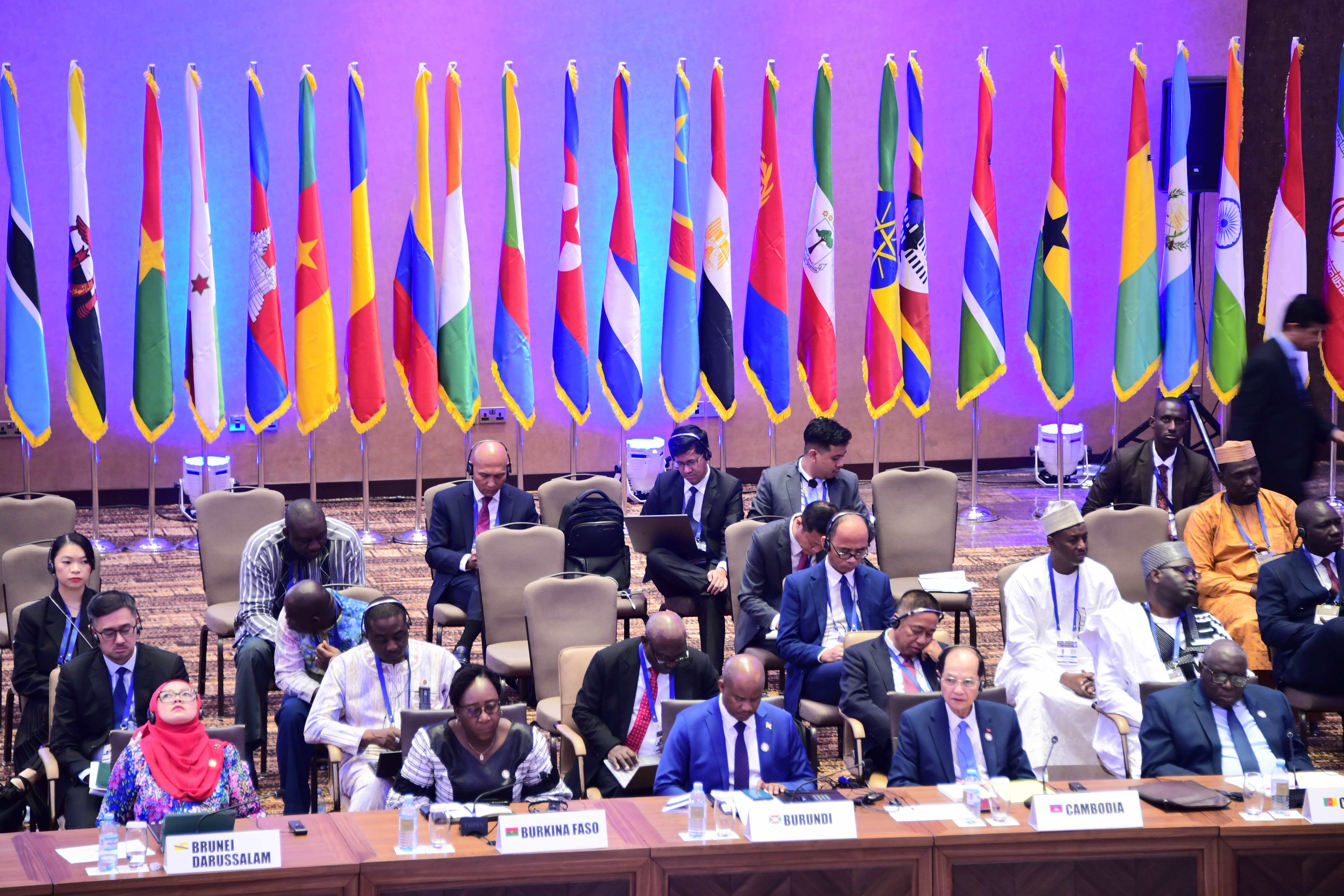
He supported a two-state solution for Palestine based on pre-1967 borders and “condemned intolerance and misinformation,” while also urging nuclear disarmament and increased social welfare investment.
South Africa’s Deputy Minister of International Relations and Cooperation, Alvin Botes, thanked Uganda for hosting the meeting, saying NAM remained vital “amid rising global tensions, conflict, and underdevelopment.”
He condemned the war in Ukraine, the occupation of Palestine, and the genocide in Gaza, as well as humanitarian crises in Sudan and eastern DRC.
Sri Lanka’s Foreign Affairs Minister, Ali Sabry, endorsed the NAM Committee’s Political Declaration on Palestine, welcoming the initial ceasefire agreement between Palestine and Israel.
He noted that “displaced Palestinians have begun returning to Gaza, families reunited, prisoners expected to be released, and humanitarian aid reaching affected areas,” while commending the mediation efforts of the United States, Egypt, Qatar, and Türkiye.
Cuba foreign minister Bruno Rodrigues Parilla condemned “the Israeli genocide in Gaza, with over 65,000 deaths including 20,000 children,” and criticised “the US for enabling impunity at the UN Security Council.”
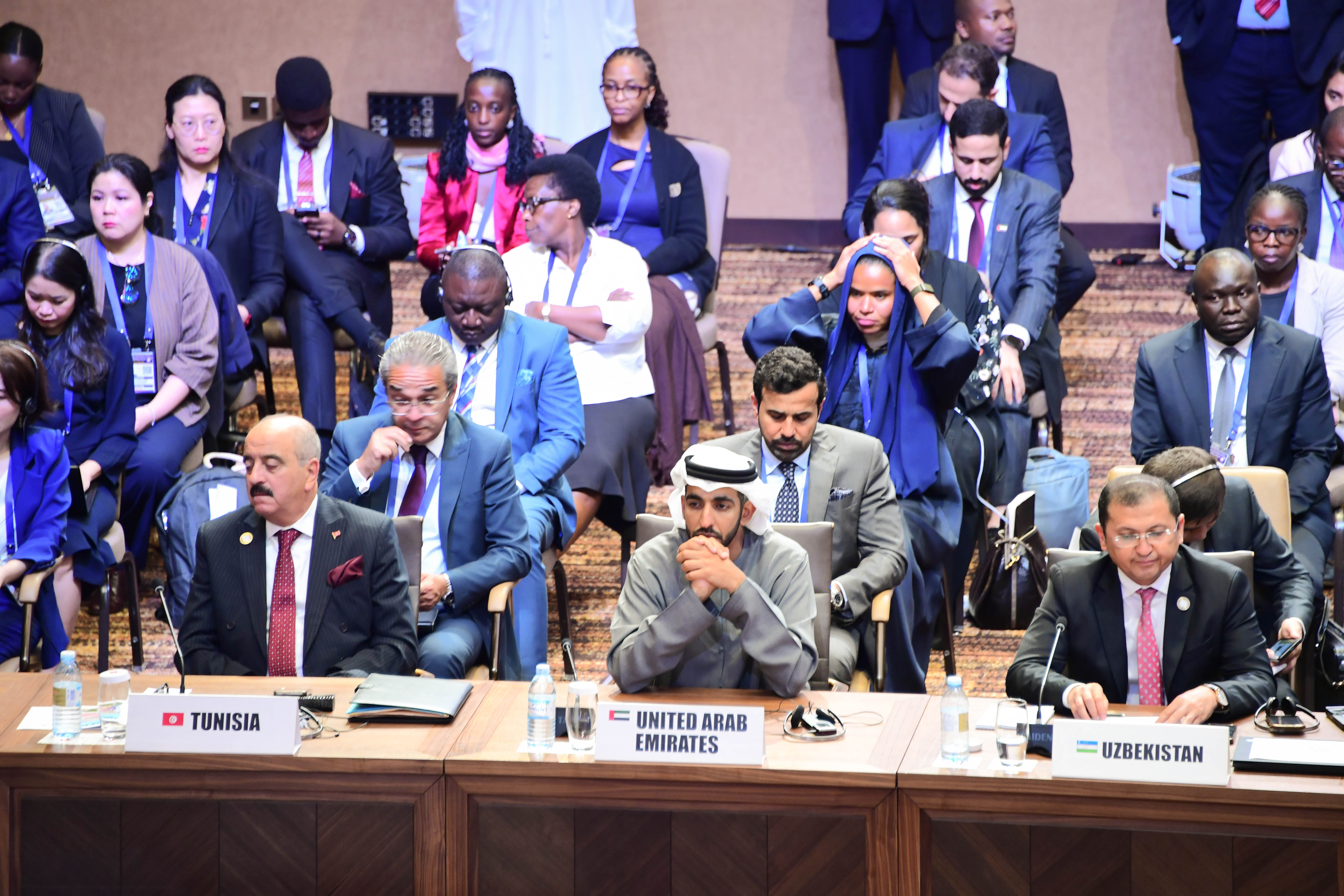
He called for “full recognition and independence of Palestine and decisive UN support.”
Tunisia’s foreign minister, Mohamed Ali Nafti, emphasised the importance of “upholding NAM’s principles to address global security, development, and climate challenges.”
He called for the establishment of a Palestinian state with East Jerusalem as its capital and urged accountability for Israeli actions.
Indonesia’s Deputy Minister of Foreign Affairs, Armanatha Nasir, reaffirmed his nation’s support for justice, equality, the rule of law, and especially the cause of Palestine.
Thailand’s Permanent Representative to the UN, Vijavat Isarabhakdi, welcomed the Sharm el-Sheikh Summit’s peace efforts and called on NAM “to adapt and unite to promote peace, inclusivity, and sustainability globally.
Botswana’s High Commissioner to Uganda, Andrew Onalenna Sesinyi, welcomed both the Kampala Declaration and the Political Declaration on Palestine, expressing hope they would “lead to meaningful progress” and reaffirming faith in the meeting’s outcomes to advance NAM’s objectives.
Uganda’s commitment
As Uganda nears the conclusion of its NAM chairpersonship, Odongo reaffirmed the country’s commitment to the Movement’s ideals.
“Uganda remains steadfast in defending the core principles of the NAM-solidarity, mutual respect, equality and non-interference and in advancing the collective interests of our Member States,” he said.
He pledged that Uganda would “continue to serve as an impartial and effective steward of the Movement, safeguarding its unity and advancing its shared objectives with renewed resolve.”
“Together, let us carry forward the spirit of Kampala, the spirit of cooperation, solidarity, and shared commitment to a just, peaceful, and prosperous world for all,” Odongo concluded.